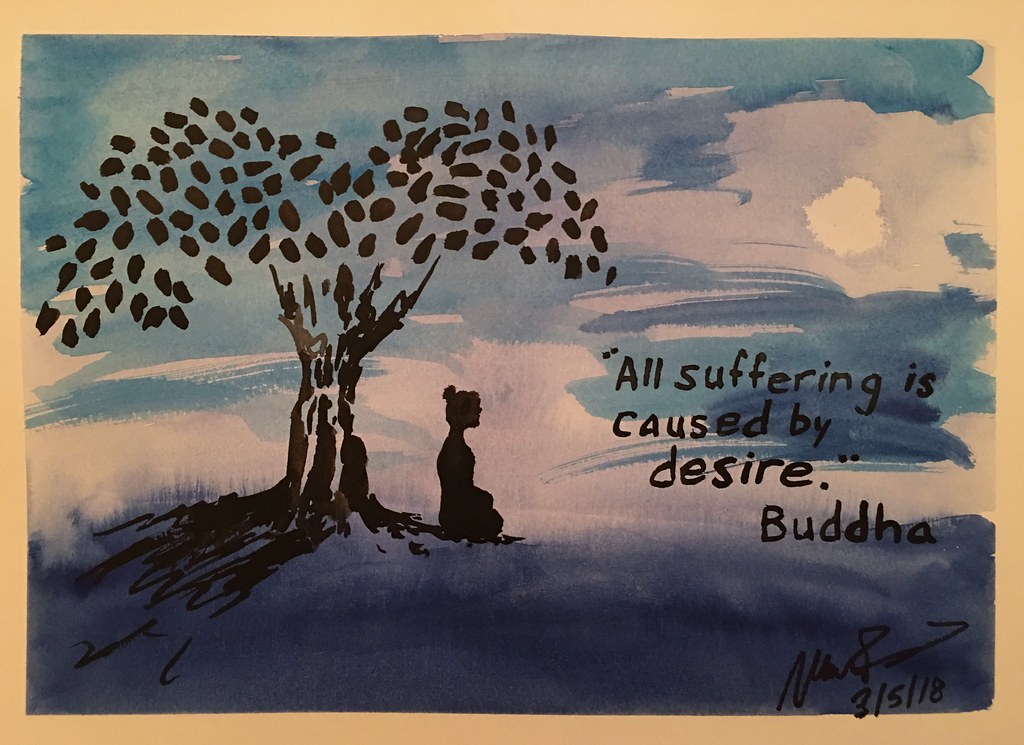
After spending 6 years trying to find the solution for human suffering, Buddha finally got there. At that time, it was named Nirvana. It was the end of a path out of the domination of instincts and cravings.
Years later, understanding better that Buddha was talking about a moment of awakening, being able to truly see reality, the expression enlightenment started being used.
‘Imperfect enlightenment‘
We need to understand that Nirvana or enlightenment are not relative, they cannot be adapted into half-enlightenment or an almost Nirvana
It is possible to be on the way there, but you either reach it or not. There is not an imperfect enlightenment. But such an event is so magnificent that calling it perfect is not redundant, it merely emphasizes the state.
Enlightenment is a word with such a great range of positive vibrations that should not be used commonly, but as a blessing. Unfortunately, it has lost part of its meaning since it has been used so widely nowadays.
While Buddha was alive he wouldn´t use this word. He would say Nirvana, instead. And Nirvana means wiping out, extinguishing the fire of suffering. He used this word because he understood that most part of our suffering comes from our attachment to this world of life and death, ours and that of our beloved ones.
The wheel of life
This cycle of life: birth, growth, eventual sickness, aging, and dying is a nonstop cycle called Samsara. When you break free from attachments you get out of Samsara.
To get a better sense of that, have you ever asked yourself, is life really just that? Waking up, working, studying, eating, coming back home, sleeping and starting it all over again? What is the purpose? To get your answer you have to get out of Samsara.
There is a tale of a great general that after fighting and winning many battles and known as an honorable man, one day, got tired of Samsara. He went to see a very wise Buddhist master, but the master wouldn´t speak to him.
The general didn’t take no for an answer and did not leave. The master stayed in meditation for a long time. Winter came, snow was covering the ground and the general was still there, waiting for the master.
The monk decided to give up and spoke to the general. “What is it that you want from me, general?” “Master, please, I beg you, set me free from my Samsara.” The master stopped for a couple minutes and asked the general “Who put you there?”
He understood the question, he knew the answer and attained enlightenment. Suffering comes most from the fact that we are not able to push away what we don´t want and not have it our way.
That’s attachment. And it is important to see that it is connected to many other important concepts such as acceptance of impermanence and the non-self (void). It keeps us in the Samsara.
Awakening
The idea of enlightenment comes from the image of someone having lived with their eyes closed and suddenly opening them to see reality. A reality that was always there, but they weren’t able to see (because their eyes were closed).
Christians have a similar “epiphany”. In the gospel story, Paul, a ruthless persecutor of Jesus and his followers, faces a tremendous light and is blinded in that moment.
He then starts a dialogue with Jesus and understands the truth of his teaching. When he was able to see again, he had changed into a much better man. He had left his own self and also devoted his life to spreading the teachings that had helped him (any many others) out of suffering.
Buddhists believe Enlightenment happens spontaneously; however, there must be some preparation. It is important to understand that it is not the result of such preparation. It will occur at the right time. The preparation, known as the eightfold path is a way of getting there faster or more easily.
There should be an organic preparation (fruit of the path) because, otherwise we wouldn’t be able to take the greatness of enlightenment. I relate this explanation with the one doctors give when someone has been through a hunger strike and therefore malnourished, if you feed them more than a minimum you will kill them. Their bodies are not ready for taking too much.
We need to nourish our minds likewise, slowly and gradually to achieve mindfulness and attain enlightenment, our final step on the path from Samsara to Nirvana.










